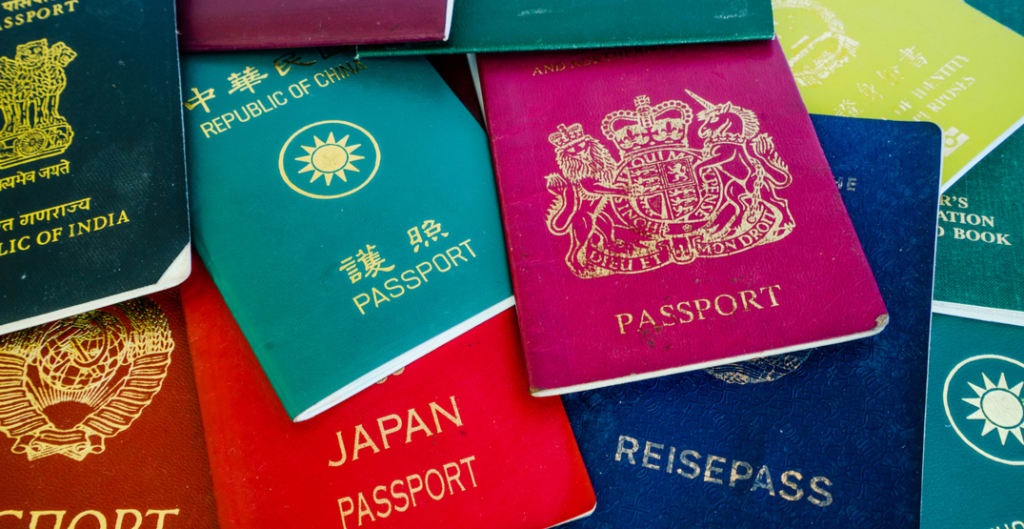Most Powerful Passports: Singapore at Top
Here's Why India is Climbing Up & US, Japan Sliding Down Rankings

For five long years, Japan has been sitting pretty in the No.1 position in the Henley Passport Index, which measures global travel freedom in terms of how much visa-free and visa-on-demand access to the world different citizens enjoy.
But for summer 2023, Japan’s been knocked down into third place and the new titleholder is Singapore, whose citizens are able to visit 193 destinations out of 227 around the world visa-free.
And while Asia has long dominated the top of the leaderboard in the index created by London-based global citizenship and residence advisory firm Henley & Partners, Europe is bouncing back. Germany, Italy and Spain have all moved up into second place with visa-free access to 190 destinations, while Japan and South Korea are joined in the No.3 slot by Austria, Finland, France, Luxembourg and Sweden. Citizens from that particular magnificent seven enjoy access to 189 destinations without needing a prior visa.
The United States and the United Kingdom have both been on a downward trajectory since the halcyon days when they jointly held the No.1 spot way back in 2014, but the UK, at least, appears to be turning things around. It’s made a sprightly two-rankings hop to No.4 in the ranking, a position it’s not held since 2017. The US, meanwhile, has dropped a further two places to eight spot, with access to a mere 183 destinations visa-free.
The Henley Passport Index is based on data from the International Air Transport Association (IATA) and ranks 199 passports worldwide. It’s updated in real time throughout the year, as and when visa policy changes come into effect.
In its latest release, Henley & Partners notes that over the history of the 18-year-old ranking the average number of destinations travelers are able access visa-free has nearly doubled, from 58 in 2006 to 109.
However, the travel freedom gap between those at the top and the bottom of the ranking is wider than ever. Citizens of Afghanistan are only able to visit 27 destinations without a prior visa, just below Iraq (with 29 destinations) and Syria (with 30).
Cristian H. Kaelin, chairman of Henley & Partners, notes that Singapore has been busy securing greater travel freedom for its citizens over the past decade, gaining visa-free access to 25 new destinations.
“The UAE has added an impressive 107 destinations to its visa-free score since 2013,” he says. “Of the countries sitting in the Top 10, the US has seen the smallest increase in its score, securing just 12 additional destinations.”
Greg Lindsay, from Cornell Tech’s Jacobs Institute, says in the Henley & Partners release, “The story is a simple one — by more or less standing still, the US has fallen behind. America’s relentless slide down the rankings is a warning to its neighbor Canada and the rest of the Anglosphere as well.”
In today's interconnected world, the power of a passport plays a significant role in determining an individual's global mobility and access. As the rankings continue to shift, it is intriguing to explore the reasons behind these changes.
Now at the top of the list, we find Singapore - a nation known for its strong economy and political stability. With visa-free access to 190 destinations, Singaporean passport holders enjoy unparalleled freedom when it comes to international travel. This high ranking can be attributed to Singapore's diplomatic relationships, strategic alliances, and commitment to maintaining strong global ties.
While Singapore reigns supreme, it is important to note India's gradual climb up the rankings. As one of the fastest-growing economies in the world, India has been actively strengthening its bilateral relations with various countries. This has resulted in improved visa agreements and increased visa-free access for Indian passport holders. The government's efforts in expanding business and tourism opportunities have undoubtedly contributed to India's upward trajectory on the passport index.
On the other hand, traditional powerhouses such as the United States and Japan have seen their positions slide down in recent years. Factors such as changing geopolitical landscapes and evolving travel policies have impacted their rankings. In addition, stringent immigration measures implemented by these countries have led to decreased visa-free access for their respective passport holders.
It is worth mentioning that these rankings are not static and can change over time. As countries adapt their foreign policies or form new alliances, shifts in global power dynamics can heavily influence passport rankings.
In conclusion, understanding the dynamics behind these shifts in passport rankings provides valuable insights into geopolitical trends and a deeper appreciation for how international relationships shape our ability to explore new horizons.
About the Creator
Ahmad Altaf
Journalist. Content Creator. Media Lover
Enjoyed the story? Support the Creator.
Subscribe for free to receive all their stories in your feed. You could also pledge your support or give them a one-off tip, letting them know you appreciate their work.





Comments
There are no comments for this story
Be the first to respond and start the conversation.